Sunday Musings: Back to School
The list of 300 Books Everyone Should Read At Least Once rolled around Facebook earlier in the summer. Without counting the books on the list that I totally plan to read within the next year or so, I managed to score a pathetic 87/300 books read. I’ve read lots of books, but I guess these are the ones that make me look intelligent and cultured, so clearly, I’ve got lots of reading to do before I die in order to upgrade my reputation!
Examining the list, I noticed that a lot of the books that counted towards my read pile were books that I read in school. A lot. The Shakespeare titles accounted for a quite a few, but there were others, such as The Catcher in the Rye and A Separate Peace, books I likely would never have read if the education system hadn’t forced me to. But, grudgingly as I may have flipped those pages, I do have fond memories and still treasure the fully dogeared and underlined and notes-scribbled in the margins copy of A Prayer for Owen Meany on my shelf.
Prior to checking out that list, I had already embarked on a little reading challenge related to my school days. I’ve been rereading some of the books that really stood out for me, though at the time, I probably didn’t understand why.
 First up was The Handmaid’s Tale, which I reread last year, prior to learning about the show. I’m glad I did reread it, as it makes the show that much more interesting. But the reread opened my eyes to one particular element of the book: sexism. I mean, obviously, the concept of Margaret Atwood’s dystopian future where women’s bodies are a commodity and fertility their only purpose is pretty messed up and I would like to think that my teenaged brain picked up on that. But upon rereading the book, it struck me that this was not the topic of any of our classroom discussions. In fact, there were also no discussions about the sex and displays of sexuality that occurred within the story. Granted, talking about sex with teens in our immature society would probably lead to lots of stifled giggles, but that’s part of the problem our society faces, isn’t it? Too afraid to talk about sex, making it taboo and causing books like this that should offer opportunities for healthy discussion to end up on banned books lists instead because they are too explicit and immoral and blah blah blah. Obviously, since I read it in high school, it wasn’t banned by our school board, and it’s great that we got to read it, but I fear much of the purpose of including a book on the curriculum is lost if all of its issues, including the controversial ones, aren’t actually addressed in the discussion.
First up was The Handmaid’s Tale, which I reread last year, prior to learning about the show. I’m glad I did reread it, as it makes the show that much more interesting. But the reread opened my eyes to one particular element of the book: sexism. I mean, obviously, the concept of Margaret Atwood’s dystopian future where women’s bodies are a commodity and fertility their only purpose is pretty messed up and I would like to think that my teenaged brain picked up on that. But upon rereading the book, it struck me that this was not the topic of any of our classroom discussions. In fact, there were also no discussions about the sex and displays of sexuality that occurred within the story. Granted, talking about sex with teens in our immature society would probably lead to lots of stifled giggles, but that’s part of the problem our society faces, isn’t it? Too afraid to talk about sex, making it taboo and causing books like this that should offer opportunities for healthy discussion to end up on banned books lists instead because they are too explicit and immoral and blah blah blah. Obviously, since I read it in high school, it wasn’t banned by our school board, and it’s great that we got to read it, but I fear much of the purpose of including a book on the curriculum is lost if all of its issues, including the controversial ones, aren’t actually addressed in the discussion.
Still, I must of gotten something out of it. And I don’t just mean two of my favourite quotes:
“Pearls are congealed oyster spit.”
This quote comes back to me now and then to remind me not to put too much value in items of status.
“Nolite te bastardes carborundorum”
Now more than ever, this Latin phrase has come to mean so much, as has the book itself as well as the show since Trump’s inauguration…
 Much like The Handmaid’s Tale, Aldous Huxley’s A Brave New World‘s sexual content shocked me — not because sex is shocking, but because when I first read it, I didn’t really notice it I guess, and again, it never came up in our discussions. But I really loved this book. Probably because I watched Demolition Man shortly after. There’s nothing like relating something pop culture-y to homework to get a kid like me invested. That was also the year I tried to work the Terminator saga into every project I possibly could.
Much like The Handmaid’s Tale, Aldous Huxley’s A Brave New World‘s sexual content shocked me — not because sex is shocking, but because when I first read it, I didn’t really notice it I guess, and again, it never came up in our discussions. But I really loved this book. Probably because I watched Demolition Man shortly after. There’s nothing like relating something pop culture-y to homework to get a kid like me invested. That was also the year I tried to work the Terminator saga into every project I possibly could.
I didn’t manage that with A Brave New World, but I fondly remember the related group project I did with three other classmates where we created a heretical magazine that would have been banned within this dystopian utopia for all of its blasphemies. Oh yes, we dared to suggest cross-caste dating! We got an A- on that project and I couldn’t have been prouder of our work.
We railed against the classism we encountered, but we didn’t notice the sexy stuff. And we also didn’t notice the complete lack of diversity. Both of these books made a big point of shipping off people like me to colonies. Because too often in science fiction and fantasy, people of colour and other marginalized groups don’t get to live happy or even unhappy dystopian lives. In science fiction stories like these that intended to show us a world that could be if society continues careening on without any kind of empathy and understanding of each other and our diverse experiences, it sometimes becomes tedious to keep reading about a society where marginalized people still have to struggle for acceptance. Science fiction — and most certainly fantasy — have the opportunity to step beyond the boundaries society places on such things, and yet, too many authors continue to fall back on perpetuating what already exists.
The recent screen translations of both stories try to do better with diversity, at least. And now that I’m older and wiser, I can appreciate the sexuality and the more explicit and controversial themes, even if I remain disappointed that my high school teachers didn’t stray from the assigned curriculum enough to discuss such things back then. Discussion opens the door to greater understanding, for those who are willing to listen, and through that, we may all just start getting along a little better. And who doesn’t want that?
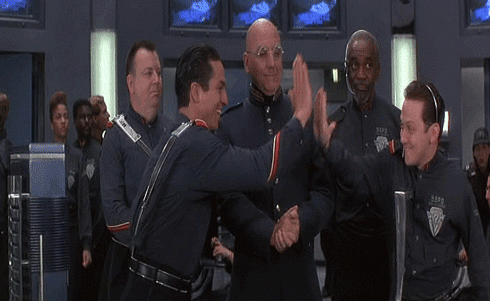







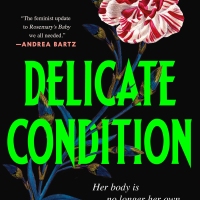

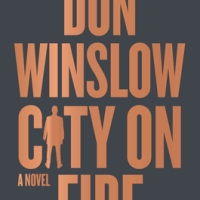
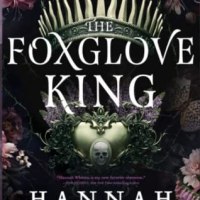
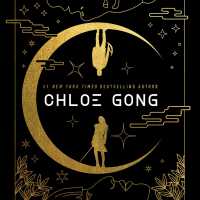
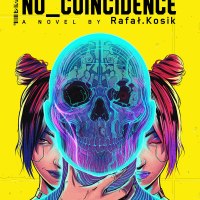
Wonderful post!!
LikeLiked by 2 people
“The Shakespeare titles accounted for a quite a few, but there were others, such as The Catcher in the Rye and A Separate Peace, books I likely would never have read if the education system hadn’t forced me to.” I was an English Major, and took AP Englishes in HS; MOST of the books I checked off were books I read in class or for class. Still a great list though. hahaha Glad you got Huxley & Atwood – both are great reads!
LikeLike
Definitely! I thank my education system for making me read them — even though I probably grumbled about it back in the day.
LikeLiked by 1 person
I just checked out that list too, I had 92 – but that’s simply because up until about the age of 17/18 I never even considered buying my own books (probably because I had no money of course) so everything I read was from School, the library or my dad’s bookshelves and most of his books were classics or history (mainly of wars/battles) – although no Shakespeare. There’s quite a few on there that I still would like to read and have meant to over the years (Fight Club, Madame Bovary, Perfume, The Great Gatsby, etc). I liked The Handmaid’s Tale but read it quite a long time ago and it would be interesting to see how it stands up. That being said, as theres still over 200 books on that list that I haven’t read perhaps I should wait to reread those I already have eh!
Lynn 😀
LikeLike
Rereading is a luxury I don’t really have time for, but at least audiobooks makes me feel less guilty about it 🙂
LikeLike
I was actually surprised by how many I’d read on that list (I got 67 out of 300). There are a few others on there that I’m planning to read soon, too: House of the Spirits, Never Let Me Go, The Handmaid’s Tale…
And speaking of back-to-school: Many of the books I’d read from that list were books I read during high school. All Quiet on the Western Front, A Tree Grows in Brooklyn, The Canterbury Tales, Lord of the Flies, Animal Farm, A Farewell to Arms – had it not been for my high school English teachers, I doubt I would have chosen to read those books on my own.
LikeLike
Same! Thanks, English teachers! Even though I grumbled about it then, I am happy that I did have to read those books. They have definitely stayed with me.
LikeLiked by 2 people
You’re lucky. When I was at school, the emphasis was on making fiction “relevant”, and finding books the kids would “enjoy”. Needless to say, we still hated them, and now we don’t even get to look back on having read something good…
[The exception was Shakespeare, who apparently comprises about 80% of all English literature ever, and 95% of English literature prior to 1920. Also for some reason a teacher allowed us to read Brave New World, despite it being literary and not “relevant” to modern teenagers.]
[bah humbug!]
LikeLiked by 2 people
Relevance comes down to perception and all the books can be relevant in ways if the teachers help the kids see the themes that are quite universal. I found that in my classes, we read the books but we really weren’t given lessons that helped make them relevant enough.
LikeLike
To be honest, I’m not sure there is a way to teach literature to children in schools. Our way certainly wasn’t – it couldn’t even engage me, and I already loved reading. [then again, most teachers seemed to me to be doing their hardest to stamp out any enthusiasm for education]. I think any time you sit a teenager down and tell them that they HAVE to read this book whether they want to or not, it’s really hard to not have them hate it automatically. My impression is that there’s a modern trend to try to deal with that by giving kids something they’ll like – but teachers have no idea what kids will really be interested in. And having a teacher tell you that you’re doing this because you’re interested in it is just patronising! Besides, people think that kids will want something with (patronisingly-written) teenagers facing (unrealistic) real-life problems, preferably with some exciting (cliché) setting like WWII or apocalyptic SF or whatever… but actually, I think a lot of kids, the kids it might be possible to reach, are often inspired by something bigger or stranger than them. Kids, after all, despite their sometime protestations, usually want to be grown up.
…well that’s a disordered ramble with no solutions I’ve typed there. Sorry about that.
[to be fair to my school, I did actually have a fantastic English teacher who was brilliant at engaging us. Unfortunately, I didn’t have him until the last couple of years of school (by which time his hands were completely tied by the Curriculum).]
LikeLike
The curriculum can definitely be binding and most certainly was years ago when I was in school. I work in a school board now and am so pleased to see the different ways teachers are and are encouraged to engage students in all the subjects. We have an arts consultant who is injecting art into everything from health to maths and sciences. Our elementary supervisory officer is a keen reader and promotes all of the different options available, such as audiobooks and graphic novels. We had a parent/family night at my kids’ school a few years back encouraging reading as a family and showing the different ways people read (ie I am a very visual reader that can “see” the story in my mind). IN other words, the moral of my rambling comment is that there’s hope now, I think. At least in some places, to make reading more engaging at all levels of learning.
LikeLike
We can only hope!
[We don’t have local school boards here. The curriculum is set nationally, and teachers don’t really have any say in what they’re going to teach or how. This has positive (no teaching creationism!) and negative (little scope for imaginative teachers) aspects. But not being an expert in the subject, I won’t try to get into that…]
LikeLiked by 1 person
Wonderful reflective post! Good on your school for having you read A Handmaid’s Tale! It is hard to believe that their was no discussion of sexism and sex consent as they are the most front and center, in-your-face themes in the book but it goes to show how much depth the book has that there was still plenty to discuss.
LikeLiked by 1 person